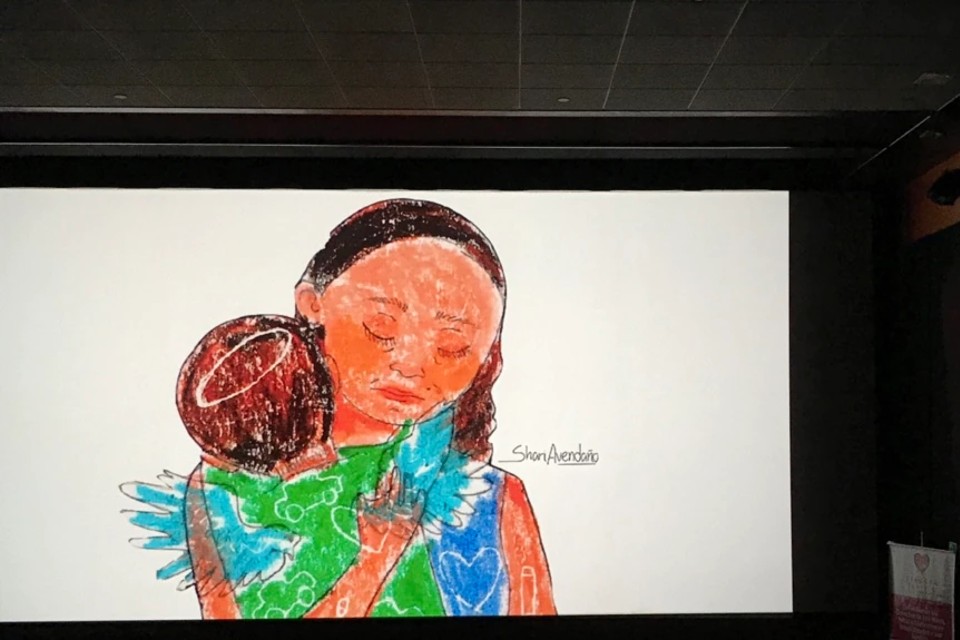On several occasions in recent years, NGOs, patients and relatives have protested in the streets of the country to denounce the hospital crisis and, in general, the complex humanitarian crisis in Venezuela
Text: Caroline Mayor
Vilomah, a Sanskrit word that means “against the natural order of things”, used to express that “the gray-haired should not bury the black-haired”, is the name of a documentary that exposes death, as a result of an infectious outbreak, in a group of patients from the nephrology service of the JM de los Ríos pediatric hospital in Caracas.
The short film, produced by the brothers Juan Pablo and Juan Carlos Orellana, reflects the complex humanitarian emergency that Venezuela is going through and seeks to raise awareness about the “preventable death of children in the public health system” through the “transforming value of art.”
For four years, starting in 2017, Juan Pablo Orellana recorded nine mothers and fathers of patients who were infected by the hospital’s “lack of cleaning the osmosis tank” and “only one had her son left alive.”
“They have died due to failures in the supply of antibiotics, due to failures in organ procurement, due to things that in any country in the world do not deserve any death, they should be here with us,” he told the Voice of America.
Orellana insists that the death of children in the public health system is one “face” of the “multidimensional emergency,” which has been “silenced and hidden.”
*Also read: A 17-year-old teenager died in the JM de los Ríos, the first minor of 2022
Regarding the term Vilomah, it is an attempt to “name the unnameable”, he points out.
“Abel Saraiba, a psychologist at Cecodap, told us that there is no word in the entire Spanish language to name the loss of a child. We have words to name our losses: if we lose our parents we become orphans, if we lose our partner we become widowers, but what about our children? It is an irreparable pain,” says Juan Pablo.
Luis Méndez is 17 years old and has been a kidney patient for three years. He started playing the violin at the age of 6 and was in charge of musicalizing the documentary. He is proud to have participated in the project.
“More than feeling happy, I want to ask you to help us, to share the video, we need a transplant,” he told VOA.
Currently, Luis is treated at another medical center, but he used to receive hemodialysis at the JM de los Ríos hospital, where, he says, they do not offer quality of life to patients.
“What they offer here, the hemodialysis machines, is not enough. In fact, in my unit, the machines are completely obsolete, that is to say, they present faults at any time that could harm us”.
She relates that, a few days ago, while a friend was receiving hemodialysis treatment, the machine’s sensor failed and “air passed into her body”, for which she had to be treated in an emergency.
“It is a failure that can be avoided by fixing the machines,” he insists, saying that he himself contracted hepatitis due to an equipment failure.
Since 2017, 68 kidney patients have died at the JM de los Ríos hospital, according to Prepara Familia, an organization that provides assistance, accompaniment and defense of the rights of children and adolescents hospitalized or with chronic pathologies and mothers. caregivers.
*Also read: Health Monitor denounces that in JM de los Ríos they reject donation for children and caregivers
Following a request from Prepara Familia and Cecodap, an organization that defends the rights of children and adolescents in 2018, the Inter-American Commission on Human Rights (IACHR) granted precautionary measures to patients in the hospital’s nephrology area, who were subsequently extended to other services.
However, the organizations, patients and relatives denounce that “the sanitary conditions” of the healthcare center “do not show significant improvements.”
0
Last month, the Venezuelan Institute of Social Security (IVSS) announced that with a cornea transplant, the procurement system for organs, tissues and cells was restarted in a hospital in the Venezuelan capital.
However, later consulted by the VOA, Carlos Trapani, coordinator of Cecodap, assured that, as far as they know, the reactivation of a care unit was announced, but “not the program.”
“The program continues to be suspended and this shows that children are still waiting for definitive solutions to a health condition that is critical for them. The reactivation of the transplant program not only requires surgical procedures, but also all medical and psychosocial measures, so that this procedure is safe and lasting for each child”, he explained.
Katherine Martínez, director of the Prepara Familia organization, explained that the State Organ Procurement program was suspended in 2017 on the grounds that they could not guarantee the supply of immunosuppressants.
In 2019, former Foreign Minister Jorge Arreaza assured that the suspension of the program financed by Petróleos de Venezuela was a consequence of the sanctions of the international community.
Post Views:
289








